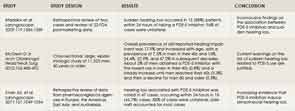Based on the data they gathered, the authors conclude that there is increasing evidence that the association between the PDE-5 inhibitors and hearing loss is plausible.
Explore This Issue
June 2014
Further Investigation
To better understand the association emerging from these studies, investigators have highlighted several issues that need further investigation. One is the physiologic mechanism by which these agents may cause hearing loss, and the other is the need to better understand the temporal relationship between the use of these agents and the onset of hearing loss.
According to Dr. Saunders, there are two main physiologic mechanisms proposed, both of which are implicated in hearing loss and cellular aptosis in the ear. The PDE-5 inhibitors cause a blockage of the breakdown of intracellular cGMP in the hair cell that may potentiate the harmful effects of nitric oxide, or the increased accumulation of cGMP may induce expression of mitogen-activated protein (MAP) kinases and/or nuclear factor-KB (NF-KB). Both the excessive nitric oxide effects and these secondary intracellular regulators have been implicated in hearing loss.
“My personal feeling is that the PDE-5 inhibitor and altered cGMP accumulation probably reduce the ability of the hair cell to respond to a variety of cellular stresses,” said Dr. Saunders, “and that is at least a predisposing factor that renders the ear more likely to develop permanent cellular damage and possibly cell death as a result of a relatively minor stress, such as noise exposure or a minor ischemic event.”
Further research is needed to clarify the mechanism of action of the PDE-5 inhibitors on hearing loss, but all studies to date suggest that the mechanisms set forth are sufficient to establish a plausible association.
Another issue not clearly defined is the temporal relationship between use of these agents and the onset of hearing loss. According to Sujana S. Chandrasekhar, MD, director of New York Otology at the New York Head and Neck Institute, NorthShore-LIJ Healthcare System, and clinical associate professor of otolaryngology at Mount Sinai Medical Center New York City, anecdotal evidence suggests that the onset of hearing loss happens within one to two days of ingesting a PDE-5 inhibitor. This was shown in the 2009 study, of which she was a co-author, which reported that 88% of the cases of hearing loss occurred within 24 hours (Laryngoscope. 2009;119:1586-1589).
Further evidence, she said, comes from the literature on other medications that can cause hearing loss, such as quinine for malaria. “If you take a quinine product for malaria, hearing loss happens within several hours to a day after the dosage,” she said, noting that hearing loss associated with the PDE-5 inhibitors should act in the same time frame. “Given what we’re seeing at the cellular level, it doesn’t make sense that it would take longer for the hearing loss to appear,” she added.
Take Home Message for Otolaryngologists
Despite the unknowns regarding the association between sudden hearing loss and use of PDE-5 inhibitors, there is agreement on the need for otolaryngologists to talk to patients about potential risk.
Leave a Reply